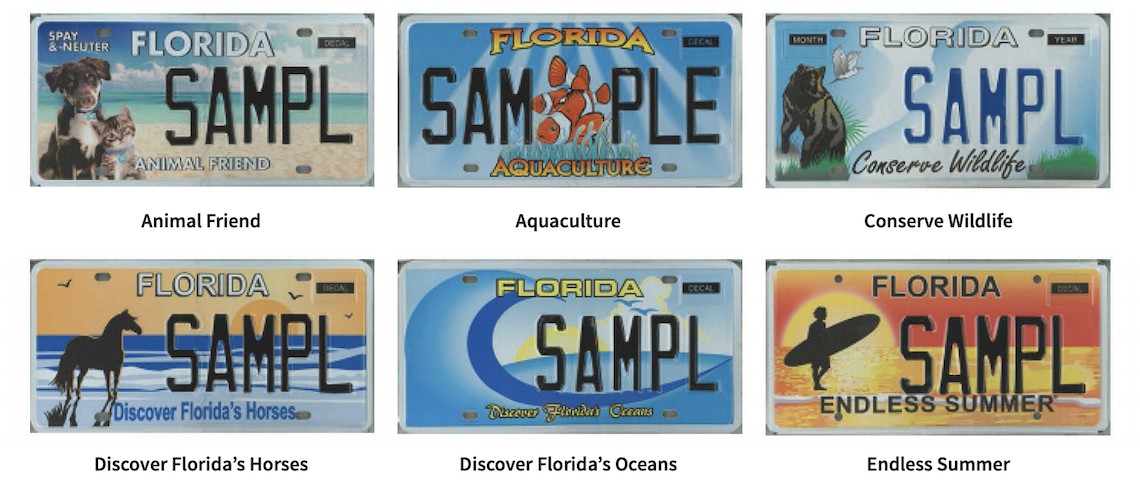Buying a new car is a significant purchase, filled with excitement about hitting the open road in your new ride. However, beyond the sticker price, it’s crucial to understand the additional costs involved, especially when purchasing in the Sunshine State. Florida, like many other states, requires you to pay registration, title fees, and Automobile Sales Tax Florida on vehicle purchases, whether new or used. This sales tax is calculated based on the vehicle’s full purchase price.
Understanding Florida’s Automobile Sales Tax Rate
The standard sales tax rate in Florida is 6%. To ensure you have the most up-to-date information, always refer to the Florida Department of Revenue website, which provides the current and official sales tax rate.
It’s important to remember that sales tax regulations and rates differ by state. If you’re not purchasing your vehicle in Florida, consult your state’s Department of Revenue for accurate sales tax information and any additional fees like inspection or documentation charges. Dealerships may also impose their own fees when you buy a car through them.
Calculating Your Florida Car Sales Tax
Calculating automobile sales tax florida is straightforward. Simply multiply the vehicle’s purchase price by the 6% sales tax rate.
For example, if you’re buying a car with a purchase price of $20,000, the sales tax due would be calculated as follows:
$20,000 (Purchase Price) x 0.06 (Sales Tax Rate) = $1,200 (Sales Tax Owed)
This simple calculation helps you quickly determine the base sales tax you’ll need to pay.
Discretionary Sales Surtax: County-Specific Rates
In addition to the statewide 6% sales tax, some counties in Florida levy a discretionary sales surtax on vehicle purchases. This surtax is added to the base sales tax, increasing the total tax burden in those counties.
Hillsborough County, one of Florida’s most populous counties, has one of the highest discretionary surtax rates at 2.5%. This surtax, combined with the 6% state sales tax, results in a total sales tax rate of 8.5% in Hillsborough County, the highest in Florida.
This 2.5% surtax in Hillsborough County is composed of several components implemented over time, including surtaxes for transportation, schools, indigent health care, and local government infrastructure.
For a comprehensive list of Florida counties that impose a discretionary surtax and their specific rates, refer to the official document provided by the Florida Department of Revenue: Discretionary Sales Surtax Rates.
 Florida specialty license plates
Florida specialty license plates
Florida specialty license plates showcasing various designs and causes supported in the state.
Additional Fees When Buying a Car in Florida
Beyond automobile sales tax florida, several other fees are associated with purchasing a vehicle in Florida. Budgeting for these expenses is essential for accurate financial planning.
- Title Fee: The title proves legal vehicle ownership. In Florida, the title fee is typically $75.75. This fee secures your official ownership document.
- Registration Fees: Vehicle registration fees in Florida vary based on vehicle type and size. While the initial registration fee starts at $225, it can increase for larger vehicles.
- License Plates and Tags: Florida offers a wide array of standard and specialty license plates, allowing drivers to support various organizations and causes. Specialty plates often involve additional fees that contribute to the supported cause.
Payments for these fees are typically made directly to your local Florida Department of Motor Vehicles (DMV). Remember to also factor in ongoing ownership costs like auto insurance when budgeting for your new vehicle.
Purchasing a Vehicle Outside of Florida
If you purchase a vehicle outside of Florida but intend to register and use it within the state, you are still obligated to pay automobile sales tax florida, referred to as a “use tax” in this scenario. The use tax rate is also 6%.
Fortunately, Florida offers a credit for any local sales taxes you paid in the state where you purchased the vehicle. If the sales tax rate in the other state is equal to or greater than Florida’s, you will not owe additional sales tax in Florida.
However, if the other state’s sales tax is lower than Florida’s 6%, you will need to pay the difference, along with any applicable discretionary surtax in your Florida county.
Florida Sales Tax Exemptions
Certain situations qualify for exemptions from automobile sales tax florida. These exemptions can significantly reduce the cost of purchasing a vehicle in specific circumstances. Refer to Florida form DR-14 (Consumer’s Certificate of Exemption) for detailed information. Common exemptions include:
- Vehicles for Resale or Lease (Dealers): Registered car dealers purchasing vehicles for resale or leasing purposes are exempt from sales tax.
- Out-of-State Delivery: If a dealer delivers a purchased vehicle to you outside of Florida, the sale is exempt from Florida sales tax.
- Vehicles Shipped for Export: Vehicles purchased in Florida and shipped out of the country via a licensed exporter are exempt from sales tax.
- Exempt Entities: Entities holding a Florida form DR-14 (Consumer’s Certificate of Exemption) are exempt from sales tax on vehicle purchases.
- Out-of-State Dealers (Resale/Lease): Car dealers from outside Florida without Florida sales tax numbers are exempt when buying vehicles for resale or lease.
Trade-ins and Sales Tax
Florida offers a sales tax benefit for private vehicle trade-ins between individuals. When two individuals trade vehicles, a trade-in allowance can be deducted from the sales tax due. This applies only to transactions between individuals, not dealerships, and must be a direct vehicle-for-vehicle trade (car, motorcycle, mobile home, aircraft, or boat). Crucially, no money can be exchanged in addition to the vehicles for this exemption to apply.
Loaned Vehicles
Loaned vehicles can also be exempt from automobile sales tax florida in specific cases. This includes vehicles loaned to high schools or educational institutions for driver’s education programs, provided they have specific license plates indicating their loaner status. Vehicles loaned to individuals while their personal cars are under repair are also considered loaners and may qualify for exemption.
